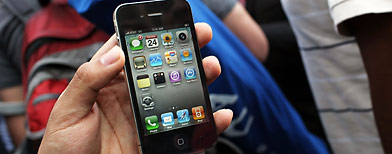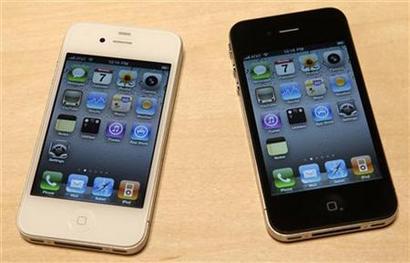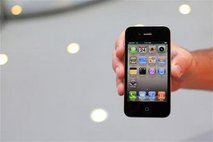 Owners of iPhones and other smartphones are one step closer towards taking complete control of their gadgets, thanks to a new government ruling Monday on the practice of “jailbreaking.”
Owners of iPhones and other smartphones are one step closer towards taking complete control of their gadgets, thanks to a new government ruling Monday on the practice of “jailbreaking.”
This weekend has seen a flurry of activity about digital rights, but the biggest news dropped Monday morning, when the FCC announced that it had made the controversial practice of “jailbreaking†your iPhone — or any other cell phone — legal.
Jailbreaking — the practice of unlocking a phone (and particularly an iPhone) so it can be used on another network and/or run other applications than those approved by Apple — has technically been illegal for years. Most jailbroken phones are used on the U.S. T-Mobile network or on overseas carriers, or are used to run applications that Apple refuses to sell, such as Safari ad-blocking apps, alternate keyboard layouts, or programs that change the interface to the iPhone’s SMS system and the way its icons are laid out.
While technically illegal, no one has been sued or prosecuted for the practice. (Apple does seriously frown on the practice, and jailbreaking your phone will still void your warranty.) It’s estimated that more than a million iPhone owners have jailbroken their handsets.
Apple fought hard against the legalization, arguing that jailbreaking was a form of copyright violation. The FCC disagreed, saying that jailbreaking merely enhanced the inter-operability of the phone, and was thus legitimate under fair-use rules.

The upshot is that now anyone can jailbreak or otherwise unlock any cell phone without fear of legal penalties, whether you want to install unsupported applications or switch to another cellular carrier. Cell phone companies are of course still free to make it difficult for you to do this — and your warranty will probably still be voided if you do — but at least you won’t be fined or imprisoned if you jailbreak a handset.
In addition to the jailbreaking exemption, the FCC announced a few oth er rules that have less sweeping applicability but are still significant:

Reuters – A customer displays an iPhone 4 purchased at the Apple Store 5th Avenue in New York June 24, 2010
• Professors, students and documentary filmmakers are now allowed, for “noncommercial†purposes, to break the copy protection measures on DVDs to be used in classroom or other not-for-profit environments. This doesn’t quite go so far as to grant you and me the right to copy a DVD so we can watch it in two rooms of the house, but it’s now only one step away.
• As was the topic in the GE ruling I wrote about, the FCC allows computer owners to bypass dongles (hardware devices used in conjunction with software to guarantee the correct owner is behind the keyboard) if they are no longer in operation and can’t be replaced. Dongles are rarities in consumer technology products now, but industrial users are probably thrilled about this, as many go missing and are now impossible to obtain.
• Finally, people are now free to circumvent protection measures on video games — but, strangely, only to investigate and correct security flaws in those games. (Another oddity: Other computer software is not part of this ruling, just video games.)
Did you know that if you subscribe to our website, you will receive email notifications whenever content changes or new content is added.
1. Enter your e-mail address below and click the Sign Me Up button.
2. You will receive an email asking you to confirm your intention of subscribing to our site.
3. Click the link in the email to confirm. That’s all there is to it! Note: if you wish to unsubscribe from our site, click the unsubscribe link at the bottom of the email you received.
Then indicate you no longer wish to receive our emails.
Thank You
Prisonbreakfreak.com Team